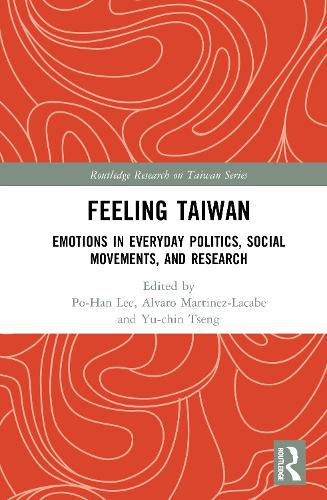Readings Newsletter
Become a Readings Member to make your shopping experience even easier.
Sign in or sign up for free!
You’re not far away from qualifying for FREE standard shipping within Australia
You’ve qualified for FREE standard shipping within Australia
The cart is loading…






In re-centring emotion in Taiwan Studies, a field long dominated by rationalist approaches, this interdisciplinary volume highlights how feelings-of belonging, grief, intimacy, distrust, and ambivalence-shape political life, social formations, and scholarly practice.
Its chapters range across colonial legacies, transitional justice, queer kinship, migrant representation, public health, disability, and more-than-human ethics, showing how emotions illuminate everyday experiences and reframe academic inquiry. By foregrounding feeling as both method and object, Feeling Taiwan benefits readers by offering new ways to interpret Taiwan's histories and futures, while also modelling how to integrate reflexivity, positionality, and affect into research practice. It demonstrates that studying Taiwan is never only an intellectual endeavour, but also an affective one-an engagement that invites readers to reimagine scholarship, community, and otherwise.
The book will appeal to scholars and students in Taiwan Studies, Asian Studies, sociology, anthropology, political science, cultural studies, and gender/sexuality studies, as well as to researchers interested in the "affective turn".
$9.00 standard shipping within Australia
FREE standard shipping within Australia for orders over $100.00
Express & International shipping calculated at checkout
Stock availability can be subject to change without notice. We recommend calling the shop or contacting our online team to check availability of low stock items. Please see our Shopping Online page for more details.
In re-centring emotion in Taiwan Studies, a field long dominated by rationalist approaches, this interdisciplinary volume highlights how feelings-of belonging, grief, intimacy, distrust, and ambivalence-shape political life, social formations, and scholarly practice.
Its chapters range across colonial legacies, transitional justice, queer kinship, migrant representation, public health, disability, and more-than-human ethics, showing how emotions illuminate everyday experiences and reframe academic inquiry. By foregrounding feeling as both method and object, Feeling Taiwan benefits readers by offering new ways to interpret Taiwan's histories and futures, while also modelling how to integrate reflexivity, positionality, and affect into research practice. It demonstrates that studying Taiwan is never only an intellectual endeavour, but also an affective one-an engagement that invites readers to reimagine scholarship, community, and otherwise.
The book will appeal to scholars and students in Taiwan Studies, Asian Studies, sociology, anthropology, political science, cultural studies, and gender/sexuality studies, as well as to researchers interested in the "affective turn".